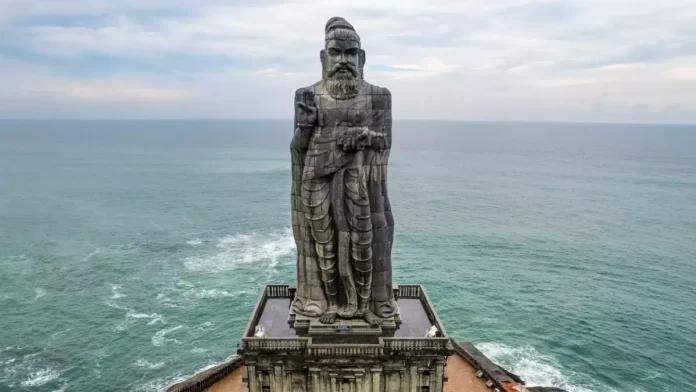New Delhi: In her eighth consecutive budget speech, Finance Minister Nirmala Sitharaman yet again drew inspiration from ancient regional classics and literary masters to drive home the Modi government’s vision of a developed India.
The minister, while describing the budget theme in her speech, went on to quote Telugu poet, playwright and writer Gurajada Venkata Apparao.
“The great Telugu poet and playwright Gurajada Apparao had said, ‘Desamante Matti Kaadoi, Desamante Manushuloi’; meaning, ‘A country is not just its soil, a country is its people’,” Sitharaman said in her 74-minute-long speech.
“In line with this, for us, Viksit Bharat, encompasses: zero-poverty; hundred per cent good quality school education; access to high-quality, affordable, and comprehensive healthcare; hundred per cent skilled labour with meaningful employment; seventy per cent women in economic activities; and farmers making our country the food basket of the world.”
Later in the day, Union Ministers K. Ram Mohan Naidu, Bhupathiraju Srinivasa Varma (Andhra Pradesh), G. Kishan Reddy and Bandi Sanjay (Telangana) appreciated their senior colleague for mentioning the 19th century literary giant.
Meanwhile, Sitharaman just did not end with quoting Apparao, as she went on to quote the Tamil classic ‘Thirukkural’.
“Reforms, however, are not a destination. They are a means to achieve good governance for our people and economy. Providing good governance primarily involves being responsive,” she said, while elaborating on direct taxes in the Budget speech.
“The Thirukkural captures this in Verse 542, which reads: vaanokki vaalum ulakellaam mannavan, koalnokki vaalung kuti. Meaning: Just as living beings live expecting rains, Citizens live expecting good governance.”
Tamil poet and philosopher Thiruvalluvar is credited with writing Thirukkural, which comprises 1,330 short couplets.
In fact, Sitharaman had quoted the Tamil poet in her 2020 and 2021 Union Budget speeches as well. “A king/ruler is the one who creates and acquires wealth, protects and distributes it for common good,” she had said, quoting from the renowned poet’s works right before announcing her proposal for direct tax in 2021.
Thiruvalluvar has often been quoted by Prime Minister Narendra Modi on several occasions. In Tamil Nadu, the DMK and the BJP are sparring over the identity of the Tamil icon. Even Sitharaman’s predecessor, P. Chidambaram of the Congress, had quoted Thiruvalluvar in several budget speeches.
Also Read: Budget 2025 wakes up to Regulation Raj. 3 key points to watch out for
Back in 2020, the finance minister had also quoted a line from Kashmiri poet Dina Nath Kaul Nadim from his famous work ‘Myon Vatan’ (My Motherland).
“Humara watan khilte hue Shalimar bagh jaise, humara watan Dal Lake mein khilte hue kamal jaisa, nau jawanon ke garam khoon jaisa, mera watan tera watan, humara watan, duniya ka sabse pyara watan (Our homeland is like the blooming Shalimar Bagh, Our homeland is like the lotus blossoming in Dal Lake, Like the fiery blood of young men, My homeland, your homeland, our homeland, The most beloved land in the world.),” Sitharaman had said while presenting her Budget speech in Parliament.
Nadim, a Sahitya Akademy award winner, “inspired the whole generation of freedom fighters and contributed to composing the message of secularism, communal harmony, and amity”.
Also Read: Winners and Losers: Who got what in Nirmala Sitharaman’s Budget 2020
(Edited by Tony Rai)







These are just used as decorative quotes. Without policies that actually reflect their spirit, they lose their value